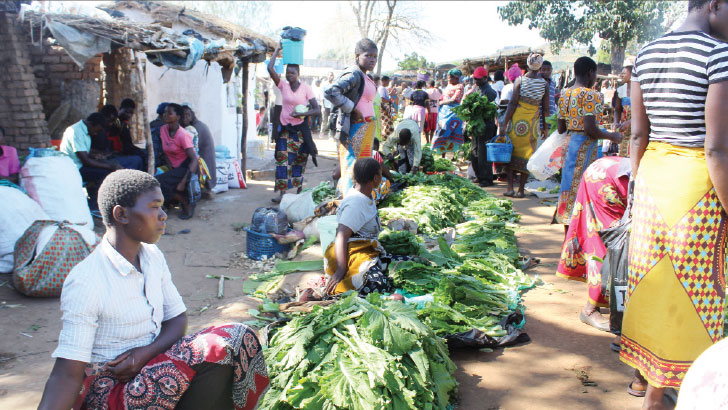‘Fair trading law review to promote fair trade’
The Competition and Fair Trading Commission (CFTC) has expressed optimism that competition and trade faring will be enhanced through the review of the Competition and Fair Trading Act of 1998 by aligning the law with current trends.
Malawi has for the past two decades been a operating under the Competition and Fair Trading Act of 1998, a development which has created gaps that has affected the commission’s ability to enforce competition and consumer welfare issues.

But CFTC believes that an effective legal framework will enhance the their capacity to enforce competition and fair trading in Malawi . This is why they have moved to draft a Bill that will repeal the current Act.
CFTC public relations officer Innocent Helema believes the review will provide a solid basis for enforcement and protection of consumer laws observing that some sections of the law, especially on penalties and the mandate of the commission, are outdated.
He said: “There are a number of reasons why we want the Act reviewed, but the main one is that it is outdated. In other parts, the law is not in tandem with international best practices in the enforcement of competition law.
“In other parts, it has gaps and contains ambiguous provisions, all of which provide challenges in the enforcement and regulation of competition and consumer welfare.”
Helema said things have changed over the years, including the value of the country’s currency, the economy in general and technology.”
According to the CFTC, areas that will be changed among others include key definitions missing in the Act such as the definition of confidential information and of an enterprise.
CFTC will also review how mergers are conducted from the present scenario where mergers are notifiable and done before or after the consummation of a merger.
“Under the new law, only mergers meeting a certain threshold will be notifiable and it will be mandatory to do so prior to the consummation of the merger,” he said.
Helema said the current position is untenable as not all mergers can have an impact on competition in the country, adding that further, notification after the Act also raises regulatory challenges as it is not always easy to unscramble a merger after it has already been done.
The proposed law also aims to revise enforcement processes of the Commission’s decisions before the court which are not clearly set out, but also extend the time for lodging an appeal currently at 15 days from the date a decision is made.
Despite Malawi being a party to several international treaties that provide for protocols or regulations on competition law, the current Act does not have provisions on cooperation with regional competition bodies.
The proposed law also aims at revising the minimum for offers from the current K500 000, which in 1998 may have been a lot of money, but is now too minimal to act as a deterrent or sufficient punishment.
The Act provides for a fine of either K500 000 or financial gain if greater, but experts say it is it is not easy to tabulate financial gain.
Further there are no aggravating and mitigating factors that may be taken into account in coming up with the penalty.
“We are, therefore, proposing that the fine should be up to 10 percent of an offender’s annual income. The amount will be dependent on the aggravating and mitigating factors provided to the commission,” he said.
The current Act also provides for imprisonment for at least five years and the new law will provide for administrative offences except for cartel conduct, which is harmful to any economy.
Reacting to the proposed changes, Consumers Association of Malawi (Cama) executive director John Kapito said in an interview on Tuesday that the review is timely and an important aspect in the promotion of consumers rights.
He said the law’s review is crucial and will act as a protection tool to consumers who have been exploited in many ways by unscrupulous traders, but also due to the weak legal framework.
Between 2020 and 2021, United Nations Conference on Trade and Development conducted a voluntary peer review mechanism, a tool used to scrutinise and evaluate the competition law and policy of a country, its institutional arrangements and effectiveness in competition law enforcement.
The peer review report, among others, identified gaps in the legal framework.
It stated that the Competition and Fair Trading Act required either repeal of the whole Act or the substantial amendment of existing provisions.
The report also noted that the budget of the commission is not in line with the demands placed on it as a market regulator and is not comparable to what is obtainable at other sector regulators.
It recommended that the commission should consider introducing an inquisitorial approach to its dispute resolution and adjudication processes.
CFTC has been conductiong consultations on the new law with various stakeholders nationwide.
The commission will thereafter finalise the Parliamentary draft of the Bill which will be submitted to the Ministry of Justice for vetting.
The ministry will take it up from there through to Cabinet and then the minister reponsible will table it in Parliament.





